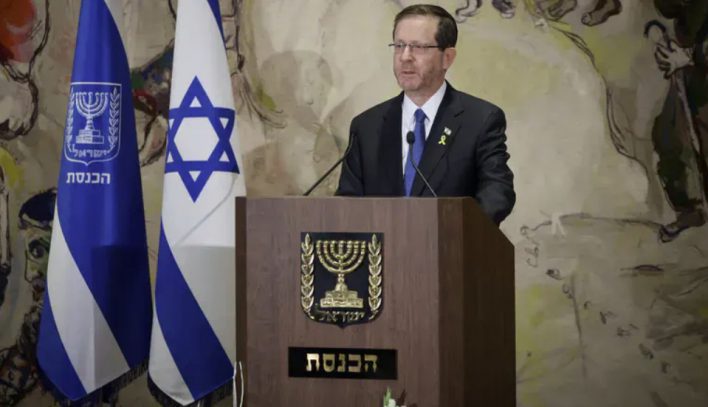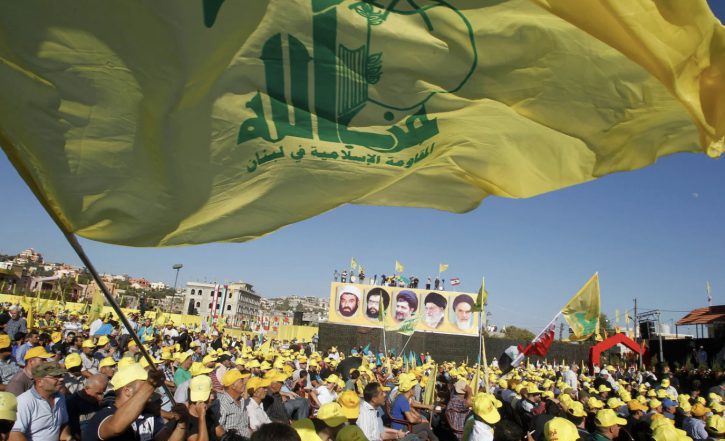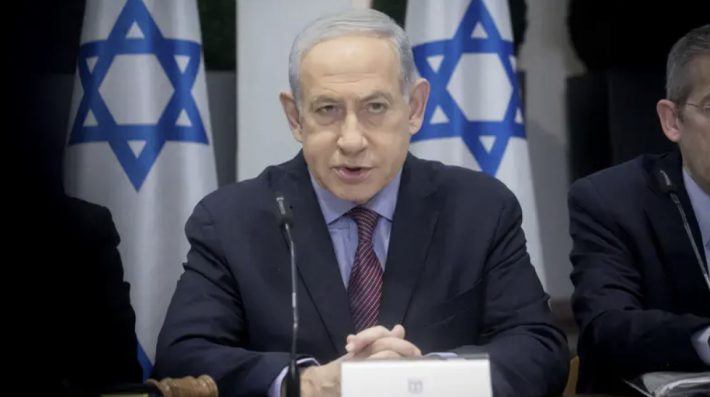Israeli President Isaac Herzog and Justice Minister Yariv Levin have discussed pardoning or reducing sentences for several Jewish security prisoners to offset the mass release of Palestinian terrorists under the hostage agreement.
Jerusalem — In a move stirring intense legal and political debate, Justice Minister Yariv Levin has formally asked President Isaac Herzog to pardon or commute the sentences of a small group of Jewish security prisoners following the recent release of hundreds of Palestinian Arab terrorists as part of the hostage deal, Yedioth Ahronoth reported Friday.
According to the report, Levin argued that the release of terrorists convicted of deadly attacks on Israelis created a moral and judicial imbalance, and that a limited gesture toward Jewish prisoners convicted of nationalist-motivated offenses would help restore “public faith in fairness and proportionality.”
Herzog and Levin reportedly held a series of quiet consultations over recent weeks to explore the legal and political feasibility of such commutations.
Popper Case Under Review
Sources confirmed that one of the names under active consideration is Ami Popper, who has been imprisoned since 1990 for killing seven Arabs in Rishon Lezion. Popper, a former IDF soldier, was convicted of murder and sentenced to life imprisonment, though he has served more than three decades behind bars.
President Herzog is said to be open to commuting Popper’s sentence to a fixed term, rather than granting a full pardon, a distinction that would leave the conviction intact but shorten his remaining time.
While Levin reportedly submitted a list of about six Jewish inmates convicted of severe security-related or nationalist crimes, Herzog rejected most of the proposed names, signaling that any clemency would be exceptional, symbolic, and limited in scope.
Balancing the Scales After Terrorist Releases
The move comes in response to domestic pressure following Israel’s decision — under international mediation — to free 1,900 Palestinian prisoners, including 250 serving life terms for terrorism, in exchange for hostages held by Hamas.
Many Israelis, particularly from bereaved families and right-wing communities, have criticized the government for freeing convicted murderers while Jewish offenders remain incarcerated for decades. Levin reportedly told Herzog that such a disparity “erodes the principle of equal justice under law.”
“When the state frees murderers who slaughtered Jews in cold blood, the continued imprisonment of Jewish security offenders — many of whom have expressed remorse — cannot be ignored,” said a senior political source familiar with the discussions.
Herzog’s Position: Cautious but Compassionate
While Herzog is legally empowered to grant pardons or commute sentences, he has traditionally exercised this authority sparingly, emphasizing national unity and moral responsibility.
The President’s office has not confirmed specific cases under review but issued a brief comment:
“The President considers requests for clemency based solely on humanitarian and legal grounds, and always in coordination with the relevant state authorities.”
Officials indicated Herzog views the idea of “balancing releases” as politically sensitive and morally complex, especially given the violent nature of some Jewish nationalist crimes.
Broader Implications
If approved, even partial commutations could ignite controversy both domestically and abroad, with critics warning that the move risks moral equivalence between nationalists and terrorists. Supporters, however, argue that Israel has a duty to treat Jewish prisoners with the same compassion shown toward enemies released under diplomatic deals.
The discussion underscores Israel’s ongoing struggle to reconcile justice, security, and morality in the wake of the October 7 attacks and their political aftermath.
For now, all eyes are on the President’s Residence — and whether Herzog will take the unprecedented step of tempering justice with symbolic clemency in the name of national equilibrium.





